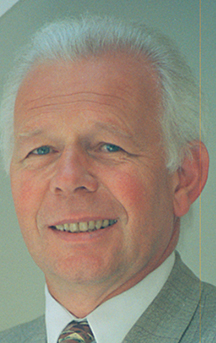Following the U.S. election, many celebrated a significant electoral victory. Many simply exhaled. Others are showing signs of frustration and despair. A significant segment of devastated voters is beginning to reflect on what just happened, and many, if not most, anxiously wait for the next shoe to drop.
Our European allies exhibit a mixture of many of these same emotions. They have been here before. Most of its leaders experienced Donald Trump’s leadership style during his previous presidency. However, few expect that that experience somehow fully prepares them for what is to come. The conditions in Europe have changed and the political balance of power in many countries have shifted and now favors the U.S. President Elect.
Europe has been mired in economic stagnation, rattled by war on its eastern doorstep. It has fallen victim to the same political forces that helped Mr. Trump gain popularity among conservatives and swing voters: a backlash against rapid consumer price increases; an anxiety and anger over increased immigration; and a rapid erosion of public trust in political elites.
Traditionally, the disarray demanded renewed and forceful leadership from the continent’s two largest economies, France and Germany. German Chancellor Olaf Scholz scuttled his governing coalition recently by firing his finance minister Christian Lindler. He will now likely face voters during early elections in March, which is projected to oust him in favor of the far-right “Alternative for Germany” party which has doubled its appeal in recent polling.
President Emmanuel Macron of France lost power in the aftermath of a recent, ill-advised, snap election he called. He is clinging to support from a shaky coalition against the far-right and left. He is essentially termed out since he won’t be able to run again in 2027.
Uncertainty from Paris to Berlin has created a power vacuum on the continent, which could embolden Russia in the war in Ukraine. It further muddles the difficult political task of ratcheting up military spending, which analysts agree will take on new urgency amid anticipated threats by Trump to pull out of NATO, pull back security guarantees, or severely reduce or eliminate support for Ukraine. Analysts agree that the most natural fit to lead a more muscular independent Europe would need to come from Germany and France—the very countries most troubled, their political power curtailed.
The longstanding effort to keep extremist forces out of government in Europe is officially over. For decades, political parties of all kinds joined forces to keep the hard-right from the levers of power. Today, this strategy, known in France as a “Cordon Sanitaire” or “firewall,” is falling apart as populist and nationalist parties have grown in strength across the continent. Mainstream political parties have lost support. Populists and nationalists, including once fringe parties on the far-right, have surged.
Right-wing or far-right nationalist movements now encompass the biggest parties in Switzerland, Italy, Finland, Slovakia, Hungary, Croatia, The Czech Republic and The Netherlands. In all these countries the insurgent parties have joined government coalitions. In Austria, the “Freedom Party,” founded by Nazis, just gained dominance. Sweden’s “Sweden Democrats” play a significant role in support of its government. It is the second largest political force in the country. And Marine Le Pen, perennial far-right opposition leader in France, is currently polling at 30% support, well ahead of President Macron.
Most of these political forces express support for Mr. Trump. They tend to see a key ally across the pond, someone who shares their mix of authoritarianism, populism and extreme hostility to immigration. The Trump organization has been diligently building strong ties with its allies among Europe’s ultra-nationalist and populist forces which now hope to capitalize on his success.
Much to analyze and much to worry about. It is difficult to escape the thought that much of Europe is beginning to come full circle since the deterioration of the Weimar Republic during the early days of the 1930s. President Elect Trump’s insertion into Europe’s disarray is unlikely to become a stabilizing force.











Theo, WTF are you smoking?
Theo, you are in the minority. Trump got the popular vote
Well the chickens have come home to roost. The deportations will begin in mass all over Commiefornia. Theo from what rock did you crawl out from under? I think it’s Todd’s method of getting clicks on this website. But this publication is done for so soon it will be silent like the rest of the legacy turd media
I’m waiting in the wings watching and laughing. Keep those rent checks coming in